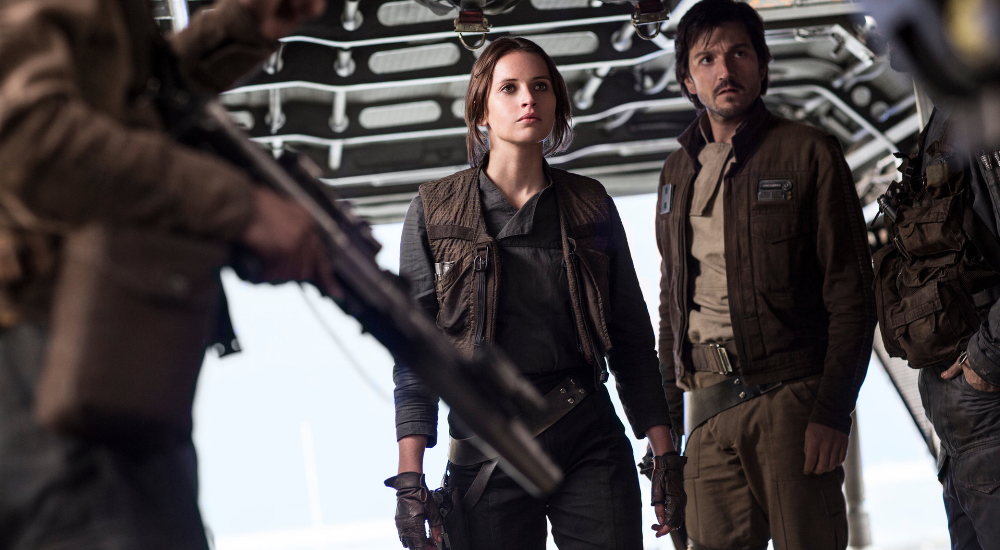The Star Wars films have always been openly influenced by forerunners: adventure serials and samurai movies informed the original trilogy, whatever nonsense George Lucas thought up about taxation and the ethics of war flowed into the prequels, and The Force Awakens took most of its cues from A New Hope. But Rogue One – likely the first of many Star Wars Stories – feels distinctly like a war movie.
Gareth Edwards – whose take on Godzilla felt occasionally awe-inspiring but never any fun – gives the film the scope it needs. While on paper it could easily be an enjoyable tale about a scrappy band of outsiders pulling off a heist, Rogue One goes wide to examine the physical and emotional toll of true rebellion.
Whereas previous films made its heroes and villains explicitly good and evil for the most part, this group's tactics are much murkier. One rebel has no qualms about killing an informant once their cover is blown. A former leader has split from the Alliance and runs his own compound where he tortures Imperial hostages. Even so, we root for them because the Empire is so casually evil. No one feels any guilt about decimating an entire city. It's all-out cruelty.
So the mission is fairly straightforward: Find and steal the plans to the Death Star so they can destroy it. But of course there are complications, since Jyn Erso's dad (Mads Mikkelsen) is the lead architect. Does he have to be held accountable for building such a tool of destruction? This movie is comfortable posing moral quandaries like this to the characters and the audience.
But the biggest one it poses is this: What are you willing to sacrifice for a cause you believe in? No character exemplifies this question more than Chirrut Imwe (Donnie Yen), a blind warrior who believes in the Force, but is not a Jedi. He's the most devoutly religious character I've seen in a blockbuster in a long time. Surrounded by skeptics – including his best friend Baze Malbus (Wen Jiang) – his stand feels even stronger than the others, who operate out of self-preservation or revenge.
The set-pieces – particularly the finale at an Imperial base on the tropical planet Scarif – have a grittiness to them that we haven't seen since that battle on Hoth in The Empire Strikes Back. The death toll feels more real. It feels like an all-out war and not just toy soldiers.
Like all Disney properties these days, it would be nice if Rogue One broke out of its box more than it did. But it stretches those limits as far as it can go. While it still has some flaws – chief among them wasting its veteran talent – big-screen entertainment doesn't get much better than this.

